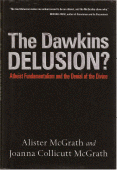Return to 1st Quarter 2017 articles.

As we are well into the twenty-first century, science continues to bring us amazing things. We have all kinds of electronic devices including medical advances that allow hope and sometimes incredible recovery from diseases that used to be fatal. We now have phones that have changed the way we communicate and how we take and display pictures. We have wonderful new modes of transportation which not only move us great distances rapidly but bring us food and clothing in mint condition from far away places. Your author can remember seeing his first television set in the early 1950s. Because the cost of long distance calls was prohibitive in those days I can remember being able to talk to Grandma once a month. Our whole way of life has been radically changed by science.
We have also seen great advances in biological science. As we walk around town, we see people with small dogs that do not look anything like the old hounds we knew as kids. They just sat around barnyards chasing chickens and scratching fleas and ticks. People spend large amounts of money on the care of pets that would not last a day in the wild. We have meat that is low in fat, high in fiber, and “guaranteed” not to give us a disease. In the Midwest, we can get lobster and salmon from far way places or grown in salt-water fish farms in Indiana.

In spite of all this progress and affluence, we have young people living in physical poverty. Crime continues to be a blight on our culture, and violence continues to be a threat to us all. Our populations have several generations that depend on pharmaceuticals to maintain our emotional well-being. Mental illness, alcoholism, drug addiction and suicide have touched most of us in personal ways. The institution of marriage has become redefined to fit the desires of special interest groups. Children and the nuclear family are being structured in ways that are radically different than in the past. The list of issues demanding attention in the twenty-first century seems to be endless: polygamy, single parenthood, same-sex marriage, group marriage, abortion, euthanasia, pedophilia, homosexuality, transgenderism, animal rights, racism.
Because of all these issues, our society has polarized into two different camps. One is the naturalist camp which claims that all of these issues can be solved by the proper application of science. Naturalists will point us to the things listed in the first two paragraphs of this article as proof that science can answer all of our needs and problems. The claim is that since all of these issues have scientific solutions, it is religion and religious people that are preventing the solutions from being applied.
The problem for the naturalist is that among their number are people who propose solutions that may have some scientific validity but are unacceptable to most people. An example of this is Peter Singer, the Ira W. DeCamp professor of bioethics at Princeton University. He has suggested that in the natural world, those individuals who are “unfit” are exterminated. He has proposed applying the principles of science to identify and exterminate people who put an economic load on society and do not contribute to the well-being of the human species. Euthanizing humans based upon intellectual ability, emotional stability, or their likelihood of being repeat offenders of the law would empty mental institutions, care facilities, and prisons, saving hundreds of billions of dollars. Singer's proposals are repulsive to most scientists, but history is full of people who practiced these principles to one extent or another. (See The New York Times, June 6, 2010, for Singer's editorial on this subject. Also in Christianity Today, August 2010, page 44.)

The other view of how to approach the issues of the twenty-first century is the religious approach. In the United States, Christianity has been a major player in addressing the needs of our culture, both physical needs and social problems. It is difficult to read Matthew 25:31 – 46 and not see that Jesus Christ expects his followers to address these problems. Alvin Schmidt, in his excellent book Under the Influence shows the wonderfully positive things that have come from people following what Jesus said and commanded. Skeptics point out the bad things done by people who claimed to be Christians, but those things were done in opposition to what Jesus taught. The same cannot be said of naturalism which has been used to justify sterilizing people deemed to be unfit, and the horror of ethnic cleansing in war after war.
People advocating the Christian approach to solving our social problems have opened food banks and homeless shelters. They have provided clothing and education to children living in poverty, run medical missions, and operated institutions of higher learning. They have provided transportation, opened libraries and elementary schools, and run orphanages. They have operated nursing homes, provided for the mentally challenged, brought relief in natural disasters, and built houses and shelters throughout the world.
Naturalism based on science principles alone will not do these things. Just as the scientific community has its extremists, so too does the religious community. In Topeka, Kansas, the Westboro Baptist Church has advocated a blind rejection of most mainline science and has opposed attempts to have a culture that functions in the world community. They have picketed funerals of soldiers killed in military service. Based on their interpretation of the Bible, they advocate a blind resistance to all secular solutions to world and national problems. Some creationist groups have taken their doctrinal views and attempted to force them into public schools. Not only is the science they advocate frequently very bad science, but also the consequences of their misguided statements frequently oppose valid scientific research. Several years ago a proponent of creationism claimed that Darwinism caused the Crusades, and tried to get public schools to exclude evolution from the curriculum on that basis. Groups like this do not represent what the broad spectrum of “Christians” believe and certainly do not represent what the Bible teaches.
What has happened is that a war has developed with both sides reacting to the extremists on the other side. A good example is the National Committee for Science Education (NCSE) which has organized teachers and college professors into a group which publishes a periodical, has many public speakers, and distributes a wealth of material for teachers that has increasingly become atheistic in content and attitude.
Avoiding the extremes of either side are groups like the Discovery Institute, Hugh Ross (Reasons to Believe), James Dobson (Family Talk, see correction note below), and Ravi Zacharias (RZIM) who take opposing views to naturalism from a biblical perspective. Their spokespersons are generally people who have the knowledge and credentials to present valid responses to atheist arguments.
We have titled this discussion “Evolution: The Needless War” because so much of the material being circulated and promoted is unnecessary. We now have both sides constructing museums, making Hollywood-type films, building edifices (such as a replica of Noah's Ark), and jockeying for time on national television where high priced documentaries attempt to sell their position. There are five simple suggestions we would make for parents and Bible-school teachers which are not ambiguous or hard to understand. Raising kids is tough in today's world. Having to choose between people who seem to have good academic credentials and yet contradict each other, makes it very hard for parents to know how to negotiate this war. They want their children to have a good education and good values that will help them make this world a better place to live.

SUGGESTION 1. Help your child understand that the word “evolution” means different things to different people and needs to be clearly defined. We all believe in “evolution.” No one doubts that there were no cockapoos on Noah's Ark — whatever a person might believe about the ark. The word “evolution” means an unfolding type of change. When a preacher says “you can't believe in evolution and believe the Bible” without explaining what he means by the word “evolution,” he does a terrible disservice to kids. The biology book the kids read from will define evolution in terms of change that can be seen. When people says, “Evolution is the basis of modern biology, and you can't understand biology without understanding evolution,” it is important to understand what he means. Is he talking about evolutionary theories such as punctuated equilibrium, cladistic drift, or other models; or is he making the basic point that biological organisms can change?
Kids need to understand that evolution is not a dirty word and that change in living things is not contested by anyone. What is contested is how much the change can accomplish. In a biology class what they learn is how animals and plants have changed and will change, and how that can be used to develop medicines, foods, and other resources we all depend on. Jacob used evolution in his selection of animals from Laban's flocks in Genesis 30:26 – 43. Discussions of micro- and macro-evolution, and concerns over the extent to which evolution can change living things can remain open to discussion. There is no reason for a teacher to denigrate the Bible on the basis of evolution, and no need for a Bible class teacher to denigrate the word “evolution” and portray it as a detriment to faith.
SUGGESTION 2. Be sure your child understands that a huge number of scientists and many evolutionists are fundamental believers in God, in Jesus Christ, and in the Bible as his Word.

One of the columns that has been a regular part of this journal is our “Scientists and God” column. This column contains quotes from famous scientists both in the past and in the world today. These quotes are about faith and the Bible, not doctrinal views. Many of the people quoted are Nobel Prize winners or candidates for the prize. All of them are highly regarded scientists. In today's world, there are people like Francis Collins, who was the director of the human genome project, who openly state their faith in Christ. I would urge parents to read this column to young people. It will help to counteract the idea that the media seems to convood scientists aey — that gre atheists and that believers are nonproductive in their efforts in science.
SUGGESTION 3. Help your child realize that religious issues surrounding evolution are not generally salvation issues. I have had the opportunity to work with Dr. Ralph Gilmore who is a professor at Freed-Hardeman College in Henderson, Tennessee. Both he and I have had a long history with the school. We disagree on questions about the age of the earth, and both of us are animated about this issue. At the same time, we agree that the age of the earth is not a salvation issue. We can support each other and work together without our opinions causing division or diluting our message. As both of us have dealt with serious illnesses in our wives, we have been drawn close to each other as brothers. That is what Christian love is about. We can be brothers in Christ without agreeing on an understanding of a scientific issue.

Biologists who are Christians can have different views about biological issues — stem cells, cloning, gene surgery, organ transplants, end of life decisions, etc. Science and Christianity overlap in many of these areas, and judgments and understandings are fluid and may change. There is too much polarizing in the church on issues that are not salvation issues. Young people need to understand that while we may disagree on a technical, scientific point, we are 100% united in our beliefs about Jesus, the church, and our relationship to God. Jesus prayed for unity among his followers, and we must not let our opinions about non-salvation issues destroy the unity Jesus prayed for (see John 17:20 – 26).

SUGGESTION 4. Be careful about what materials you bring into your home and/or Bible class. Material produced by various groups and denominations is likely to have religious and scientific error in it. Ronald Number's book The Creationists is a good resource to learn the denominational connections of the various creationist groups. It is vital that parents and teachers read through the material carefully. In many cases, you can still use the materials while avoiding sections that bring in denominational teachings, but do not blindly use any curriculum or materials. Also look at the credentials of the people who wrote the material. People with religious degrees are usually not good resources to use when explaining scientific materials, and material from science majors may not be a good way to study theology.

One good clue for the evaluation of literature is who and/or what is listed in the bibliographies and footnotes. One creationist tends to quote another creationist when science is being discussed. One evolutionist tends to quote another evolutionist when attacking the Bible. Michael Ruse said of Richard Dawkins, “He makes me embarrassed to be an atheist” (see Alister McGrath's book The Dawkins Delusion in response to Dawkin's book The God Delusion). When people are out of their field, they tend to quote someone who agrees with their view, and if that person is not educated on the issue at hand, the errors get multiplied.
SUGGESTION 5. The pulpit is not the place to attack scientific support for naturalism. When a preacher gives a Sunday morning sermon on evolution, some bad things automatically happen. People who believe in evolution become focused on finding a mistake in his message. Young people tend to postulate a debate between the preacher and their biology teacher at school. Sermons by their very nature are easy to misunderstand, especially when technical terms are used, and perhaps not always carefully defined. A better time for teaching about evolution is in class where visuals can be used, and discussion can take place. We have found that many congregations can use our free video series for the classes. A teacher's guide is available, and the material is free. You can download the videos from our doesgodexist.tv website or through our catalog, and the discussion guides can also be downloaded. If you prefer, you can get the DVDs from us. There are many other good resources on this subject available and we can provide a bibliography upon request. Avoid groups that have denominational connections and sponsorship.

We need to avoid making Sunday morning a war zone within our buildings. Worship is time to praise our God, to give thanks for the good things in life, and to motivate us to better service and a greater conformity to God's will for our lives. It is not a time to disturb our young with religious controversies about scientific issues.
CORRECTION: We reported on page 11 of our 1st Quarter 2017 journal and above, that Dobson was still part of Focus on the Family, with which he is no longer affiliated. We have been informed that Dr. James Dobson resigned in 2009 from the Focus on the Family organization due to “significant philosophical differences” with his successor. Dobson started a new program in May 2010 called Family Talk, which can be contacted at http://www.drjamesdobson.org/ or at 540 Elkton Dr., Suite 201, Colorado Springs, CO 80907.
Picture credits:
© PremiumArt. Image from BigStockPhoto.com
© Frith's Photography. Image from BigStockPhoto.com
© alexraths. Image from BigStockPhoto.com
© HighwayStarz. Image from BigStockPhoto.com
© kasto. Image from BigStockPhoto.com
© dolgachov. Images from BigStockPhoto.com
© monkeybusinessimages. Images from BigStockPhoto.com
© Dennis Cox. Image from BigStockPhoto.com
